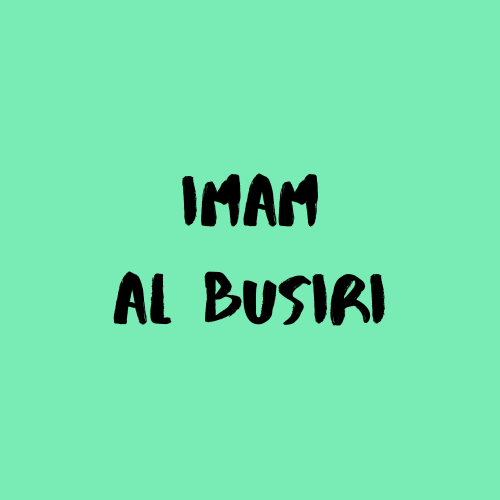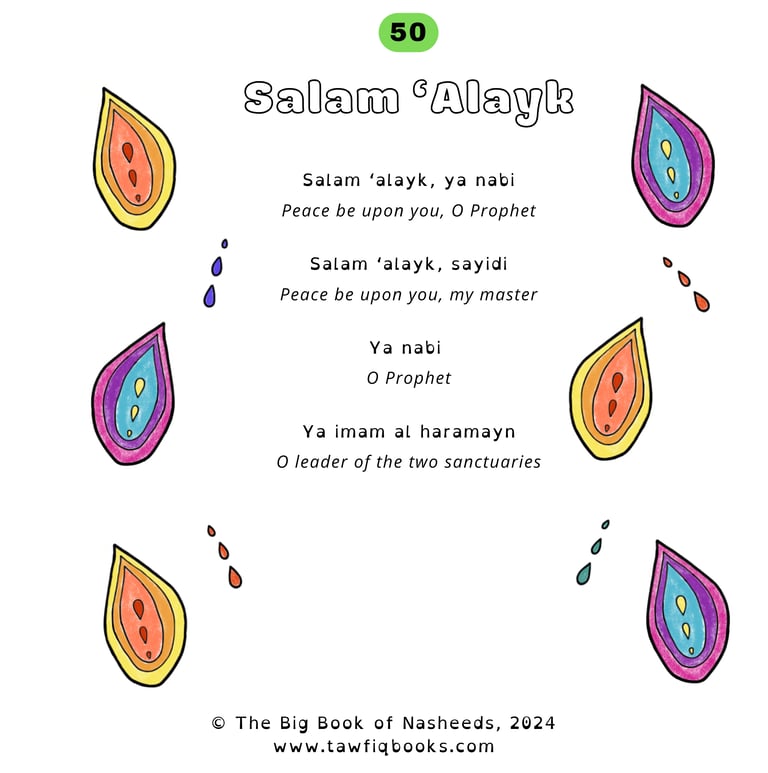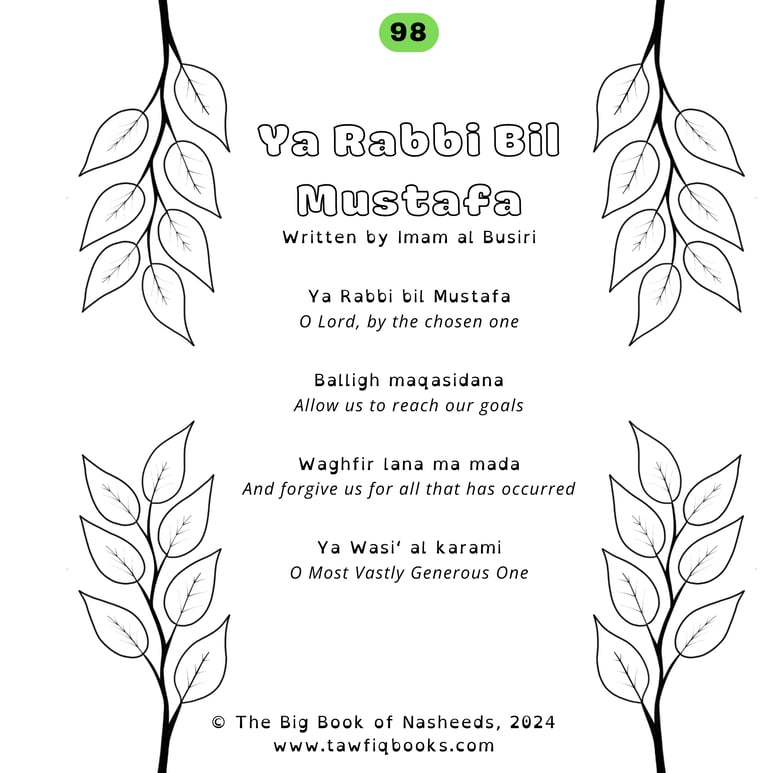Imam al Busiri
A short bio on the life of Imam al Busiri
BIOGRAPHIES
Sara Edris
8/7/20244 min read


Imam al Busiri
1212 - 1294, Egypt
Beginnings
Imam al Busiri was an Egyptian whose father was from a place called Abusir. That's why he is known as 'al Busiri'. Although not much is known about his childhood, it is probable that he learnt Quran and other sciences, as was usual at the time. He went to Cairo, where he continued to study and work as a poet.
Imam al Busiri used to write poetry for local rulers, who would pay him handsomely for his verses. He also worked as a calligrapher, copying out manuscripts.
Finding His Sheikh
Imam al Busiri then became a student of the great master Abul Abbas al Mursi, who lived in Alexandria. That's when his incredible journey took a new direction. He began writing poetry in praise of the Prophet (peace be upon him) instead of praising local rulers, and he focused on purifying himself and drawing closer to Allah. He also went on Hajj during this time.
The Story of the Burdah
Perhaps the most famous poem written by Imam al Busiri is the Burdah. The story behind the Burdah is incredible.
The Imam himself describes how he started writing poetry in praise of the Prophet (peace be upon him). Then he suffered a terrible illness which left half of his body paralysed. Imam al Busiri decided to write a special poem, asking Allah to forgive him and praising the Prophet (peace be upon him). So he wrote the Burdah, which he would recite over and over again, crying and praying to Allah for a cure.
One night, he dreamt that the Prophet (peace be upon him) came to him, completed a verse from the poem, and threw his burdah (cloak) over Imam al Busiri. When Imam al Busiri woke up, he'd been miraculously cured and could walk and move again. SubhanAllah.
He decided not to tell anyone about this amazing miracle. One day, he went out and happened to meet a religious man, who said to him "I want you to tell me the poem you wrote in praise of the Prophet (peace be upon him)". Imam al Busiri asked him, "Which one?" The man replied, "The one you wrote when you were sick".
Imam al Busiri was astonished - he hadn't told anyone what had happened. So how did this man know about it?
When Imam al Busiri had recited the first lines, the man then said to him, "I saw a vision in which this poem was being recited in the presence of the Prophet (peace be upon him). I saw that the Prophet (peace be upon him) was pleased with it and he covered the man who was reciting it with his burdah (cloak)". It was the very thing that Imam al Busiri had dreamt, too!
Imam al Busiri then recited the whole poem to the man, who memorised it and passed it on to others.
Interesting Facts About the Burdah
It is one of the most famous poems ever written about the Prophet (peace be upon him).
It is called The Burdah, which means 'the cloak', named after the cloak of the Prophet (peace be upon him). Imam al Busiri had a dream in which the Prophet (peace be upon him) covered him with his cloak after hearing some of his poem. This is similar to what actually happened to Kab ibn Zuhair, a famous poet and companion of the Prophet (peace be upon him). He wrote a beautiful poem that praised the Prophet (peace be upon him) and recited it to him. The Prophet (peace be upon him) was so happy that he took off his own cloak and wrapped it cloak around Kab. MashaAllah.
The Burdah is made up of 160 verses, split into ten chapters.
These chapters include praise of the Prophet (peace be upon him), his miraculous birth, his other miracles, the Isra and Miraj, and the poet's wish to be forgiven by Allah and receive the intercession of the Prophet (peace be upon him).
Imam al Busiri's poetry decorated the mosque of the Prophet (peace be upon him) for many hundreds of years. Two lines still remain there, adorning the beautiful mosque:
"He is the beloved whose intercession is hoped for
As arms against a host of relentless calamities"
This means that the Prophet (peace be upon him) is the beloved of Allah and our beloved.
We hope to get his intercession (we hope he will ask Allah to forgive us on the Day of Judgement)
And this intercession will protect us from continuous difficulties and problems inshaAllah.
The Burda has been translated into many languages and is regularly recited around the world. Some people sing it to different tunes too.
Commentaries have been written about it in Turkish, Urdu, Arabic, English, French, German, Norwegian and other languages.
The Burdah ends each verse with the letter 'M', to represent the name Muhammad (peace be upon him). Why don't you have a go writing a rhyming poem that ends each line with the same letter (it's really quite tricky!).
Imam al Busiri also wrote the Hamziyyah, the Muhammadiyyah and the Mudariyyah, all in praise of the Prophet (peace be upon him). These are famous poems too, but not as famous as the Burdah.
May Allah surround him with mercy, blessings and peace.




Tawfiq Books
London, UK
info@tawfiqbooks.com
©2025 Tawfiq Group Ltd. All Rights Reserved
Shopping with us
About


